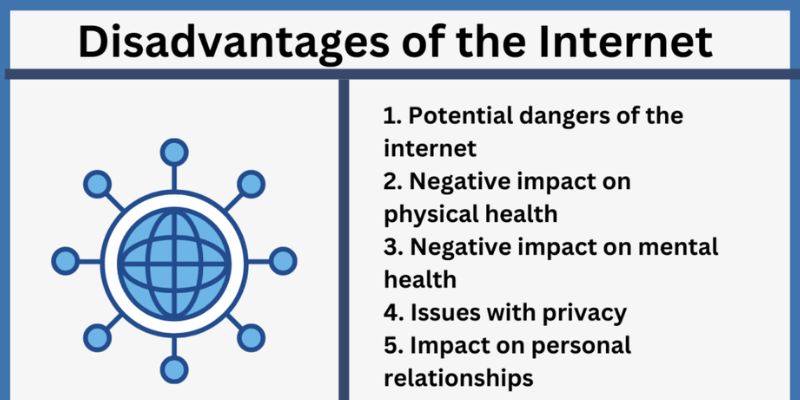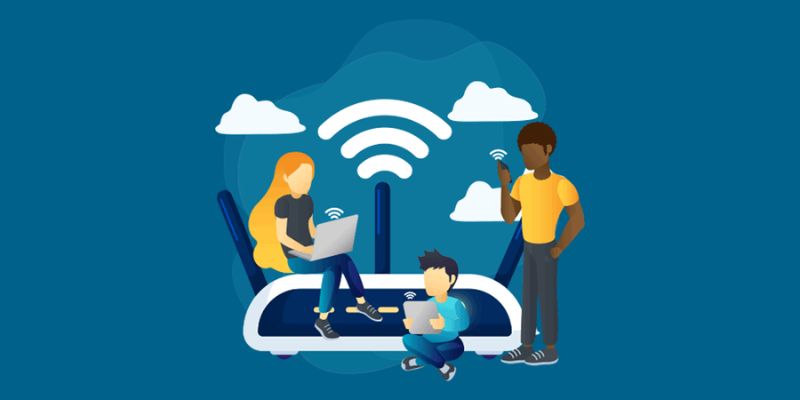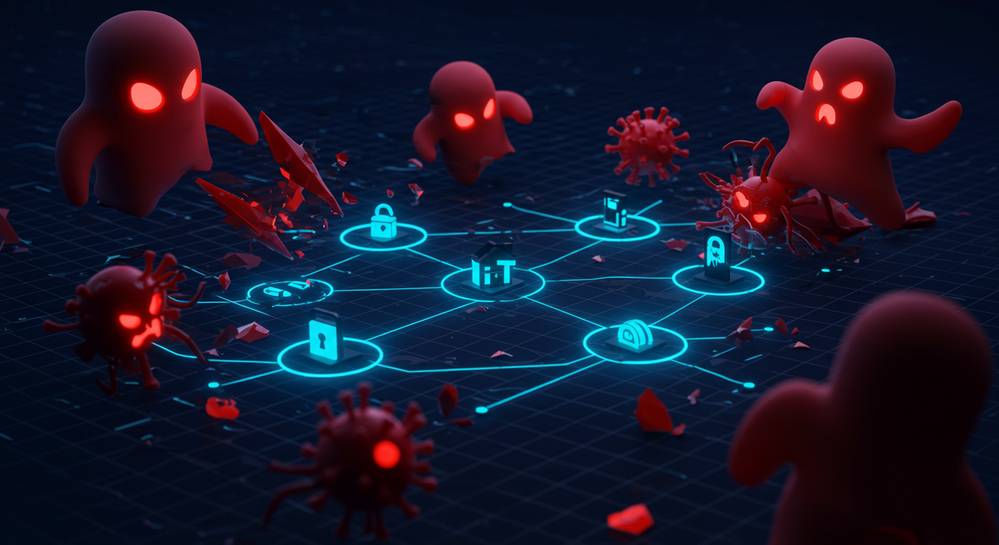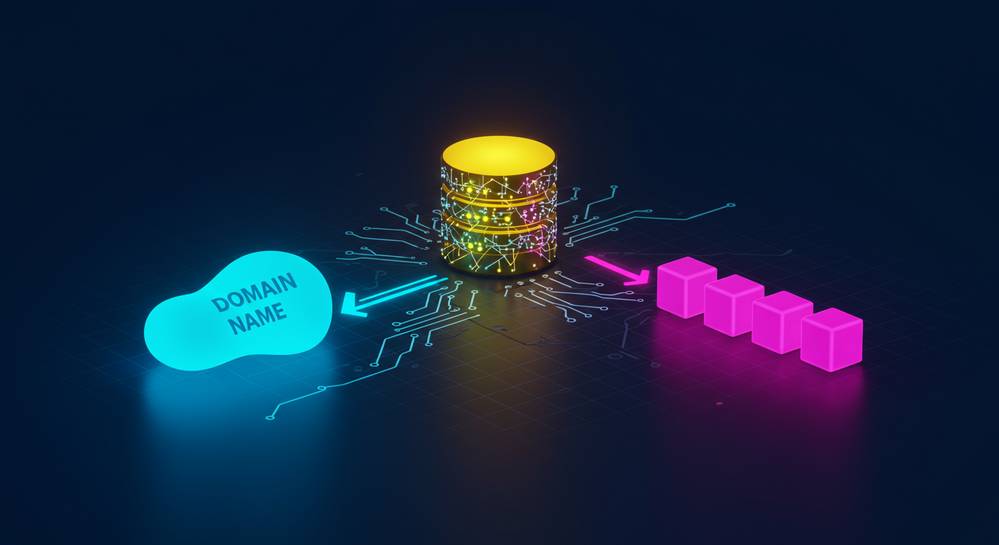Drawbacks of the Internet: Is Society Paying Too Steep a Price?
We’re always online, and it’s not all good news. Hailed for its power to connect, the internet also pulls us into its deep, dark corners. The drawbacks of the internet on society are real, and they call for our keen attention. Eyes glued to screens, fingers stuck in an endless scroll, our minds buzz with a 24/7 info stream. But what’s slipping through the cracks as we dive deeper into the digital world? Privacy vanishes, threats creep closer, and suddenly we’re caught in a web we helped weave. In these bytes, I’ll walk you through the silent battles we fight every day – from the chains of internet addiction to the loss of quiet privacy corners and the subtle shift in our social fabrics. We’ll tackle the beast of too much info and the myths it spins. Let’s dig into the real cost of always staying clicked in. Are we really ready to pay the price?
The Psychological Landscape of Internet Addiction
Recognizing the Signs of Internet Dependency
How can you tell if someone has an internet addiction? Key signs include long hours online, mood swings when offline, and less interest in real life. To elaborate, people might stay online more than they plan to. They might get angry, sad, or restless when they can’t be online. They may also start to pull away from friends and family.
Another red flag is not being able to cut down screen time. Despite knowing they should cut back, they find they can’t do it. They may try to hide how long they’re online. They might lose track of time or skip meals and sleep to stay connected. School or work may suffer as a result.
When we talk about internet addiction signs, we have to consider kids too. For them, signs include falling grades, less contact with friends and bad sleep. Their free time gets swallowed up by online activities. They may stick to their devices, ignoring everything else.
Treatment Approaches for Compulsive Online Behavior
So what treatment can help with internet addiction? The first step is to recognize the problem. Then, limit screen time and set strict online hours. More extreme cases might need help from a therapist. They use therapy to teach better online habits and coping skills.
Support groups can help people feel less alone in their struggle. There, they share stories and ways to stay away from too much screen use. A clinic might suggest a ‘digital detox’ or time away from all devices. This break helps people reconnect with the real world.
For kids, therapy may focus on balancing their online life. This includes setting limits and promoting other activities like sports or art.
Remember, it’s not just how much you’re online but also the impact it has on your life. If your work, sleep, or relationships suffer, it may be time to get help.
So, in treating internet addiction, it’s not just one size fits all. Each person needs a plan fitting to their needs. It’s also vital for families to support each other in cutting back on screen time. This way, the entire family moves towards healthier habits together.
These treatment methods aim to empower individuals. To regain control over their internet use. To improve their overall well-being. The goal is not to eliminate internet use but to promote a balanced and healthy approach to it. It’s about making sure that our online lives add to our real lives, not take away from them.

The Erosion of Privacy and Rise of Cyberthreats
Navigating the Minefield of Online Privacy Invasion
Every click, every share, every search – our actions on the web leave marks. These digital footprints paint a picture of who we are. Bad actors use these pictures for harm. You may ask, what risks come with online privacy invasion? The risks include loss of personal data, scams, and damage to your good name. The web feels like a fun place, but it’s also a minefield of privacy risks. We need to watch every step.
Take social media: we love to share. But when we do, we often give away more than we mean to. Details like your birthday, your favorite places, or photos can tell strangers a lot. This can lead to trouble if the wrong person finds them. Many don’t realize the more they share, the easier it is for someone to do them harm.
Being smart online is like locking your doors at night. It’s common sense. We teach kids not to talk to strangers. On the web, this rule is gold. Cyberbullies, fraudsters, and predators lurk in the corners. Our personal data is up for grabs unless we guard it well.
Parents, listen up. Your kids’ safety online is as vital as in the real world. Chat rooms, games, social sites – these are places where danger can hide. Teach them about online privacy early. It will serve them for life.
The Continuous Battle Against Data Breaches and Identity Theft
Data breaches are not just news stories; they are alarms. What is a data breach? It’s when private info gets into the wrong hands without your ok. Why does this matter? Because it can wreck your life. Your bank info, social security number, addresses – all can get taken. Then, you’re in a fight to get your life back on track. This is more than a hassle. It can cost money, time, and bring a world of stress.
Big companies, small ones, schools, even governments – no one’s safe. Hackers find a weak spot and pounce, like a cat on a mouse. They take what they want, often before we know they are there. It’s a game of cat and mouse, and we’re often losing.
Identity theft? That’s the nightmare scenario. Someone takes your details and becomes you, only to borrow money, or worse, in your name. You might not even know until a bill collector comes calling. Then, proving you’re you becomes a weird test.
We can’t give up the internet. But we can get smart. Use strong passwords. Watch where you click. Keep an eye on credit reports. It’s like brushing teeth or wearing seat belts—basic habits for daily life. Staying safe online takes work, but peace of mind? That’s worth the effort.
In this fast-paced digital world, we must stay alert. Cyberthreats evolve each day. With care, we can enjoy the internet’s gifts without falling prey to its shadows. Let’s not pay a price too steep. Safety and privacy online are possible, with the right moves.

Social Implications of the Digital Age
Analyzing the Social Isolation Brought by Digital Communication
What are the signs of social isolation due to digital communication? Many people feel alone even when they chat online all day. They don’t meet friends face to face. They don’t share smiles or hugs. Real bonds get weak. Screens can’t give the warmth humans need. That’s a big sign – feeling alone in a room full of chats and tweets.
We speak with emojis, not with our voices. We text hellos but rarely shake hands. We laugh with ‘LOLs’ but don’t hear the real joy in a friend’s laugh. That’s what we lose – human touch, which no digital world can replace. Screen time is up, but so is feeling low and left out.
And think about our kids. They text fast but can’t talk to new friends easy. They can play online games with kids across the sea. But ask them to play outside with the kid next door? They freeze. They’ve lost the skill to just be with others, simply and real. This is how deep the web of social isolation can weave into life.
We must spot this early. We must teach kids and even adults to balance life. Yes, use tech. It holds wonders. But don’t forget to step out. To feel the sun. To chat face to face. Let’s break the cycle of isolation screens can bring.
Addressing the Digital Divide and Its Societal Ramifications
What is the digital divide and how does it affect society? The digital divide is when some folks have good tech and web access, but others don’t. It’s like a gap. On one side, people can learn, work, and grow online. On the other, people are stuck. They can’t reach the chances that the web holds. Kids can fall behind in school. Grownups can miss out on jobs. This gap can make rich folks richer, and the poor poorer.
It’s not just about money. It’s about where you live. Fast web often stays in big cities, leaving small towns slow. Education gets hit hard. Some kids can search the web for any fact. Others can’t. They lose out. Bad web access can slam the door on their future bright and early.
We must fix this. How? By giving all areas, rich or poor, city or country, good web access. Teach people to use tech right to get ahead. We can close this gap. We can make sure no one gets left behind as the world moves online.
We’re in the digital age. It’s great. It’s fast. It’s smart. But with these gifts come tests. Can we stay connected, not just online, but heart to heart? In the quest for a wired world, it’s a question we can’t afford to miss.

The Double-Edged Sword of Information Overload
Combating Misinformation and Its Societal Fallout
Misinformation spreads fast online. It harms trust and feeds fear. How do we stop it? We start by questioning sources and checking facts. Many steps exist to fight false information.
Educate yourself and others. Learn how to spot fake news and share skills. Use fact-check websites. They confirm if news is true or false. Talk with friends and family. Help them understand why some stories aren’t real. Use social media carefully. Share only news from reliable places. Teach kids to do the same, so they learn early.
Websites like Snopes can help check facts. They look into rumors and news to find the truth. By using such tools, we can stop false stories from spreading and protect our trust in what we read and hear.
The Impact of Hyperconnectivity on Attention Spans and Critical Thinking
Screens are everywhere. Staying focused is hard with constant pings and pop-ups. What’s the cost? A drop in deep thinking and a jump in distraction levels.
Our brains multitask less than we think. Switching tasks costs us time. It makes learning and remembering harder. Schools teach kids to think deeply. But online, they jump from tab to tab without thinking hard. To get better, practice focusing. Pick a task and stick to it. Set times for reading emails or checking phones. Turn off notifications. They break your focus. Talk and read with your kids. It helps them learn patience and attention.
By being mindful of our tech use, we can reclaim our concentration. Taking breaks from screens helps our brains rest. Playing games, reading books, or building models with no screens can grow our critical thinking. But it starts by saying no to constant screen checks and yes to time offline. This way, we build brains ready to learn and think deeply, not just click and move on.
In our dive into the digital world’s pitfalls, we explored internet addiction, where recognizing the signs is critical. We discussed how to fight the urge to stay online all the time. Privacy erosion and cyberthreats are real, with online privacy invasion and data breaches on the rise. Protecting our data is a must.
We also looked at how screens can isolate us, and the digital gap’s effect on society. It’s crucial to find ways to connect in real life. Plus, in a world full of too much info, we learned to spot fake news and saw how being always plugged in can harm our focus and thinking.
To sum it up, the digital age has its ups and downs. It’s on us to use the web smartly, keep our private stuff safe, and think before we click. Let’s not let our screens rule us. Stay sharp, stay safe, and keep real-life connections strong. Let’s take charge of our digital lives!
Q&A :
What are the negative effects of internet on society?
The internet has transformed modern life, but it also brings negative repercussions. Common issues include reduced privacy, potential addiction to online activities, misinformation spreading more rapidly, decreased face-to-face interactions leading to weaker social bonds, and the impact on mental health due to cyberbullying or social media pressures.
How does internet usage contribute to social isolation?
Despite its role in connecting people across the world, internet usage can lead to social isolation. Individuals may substitute real-world interactions with online communication, which can be superficial in nature. This can reduce the time spent on physical social activities and potentially exacerbate feelings of loneliness and depression.
Can the internet influence mental health, and if so, how?
Yes, the internet can significantly influence mental health. It has the potential to affect sleep patterns due to screen time, contribute to anxiety and depression through social comparison on social media, and provoke stress from the constant flow of information and digital distractions.
In what ways does the internet impact children and teenagers negatively?
The internet affects children and teenagers by exposing them to inappropriate content, cyberbullying, and can foster addictive behaviors towards video games or social media. It also presents challenges in developing real-life social skills and managing time effectively between online activities and other responsibilities.
What are the cybersecurity risks associated with internet usage?
Cybersecurity risks include identity theft, phishing attacks, malware distribution, and financial fraud. The more society relies on the internet, the more vulnerable it becomes to these threats, which can have significant consequences for both individuals and organizations.



